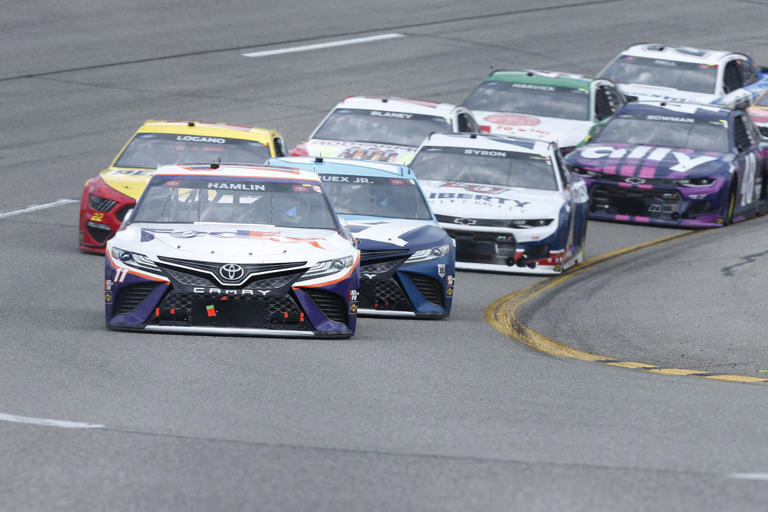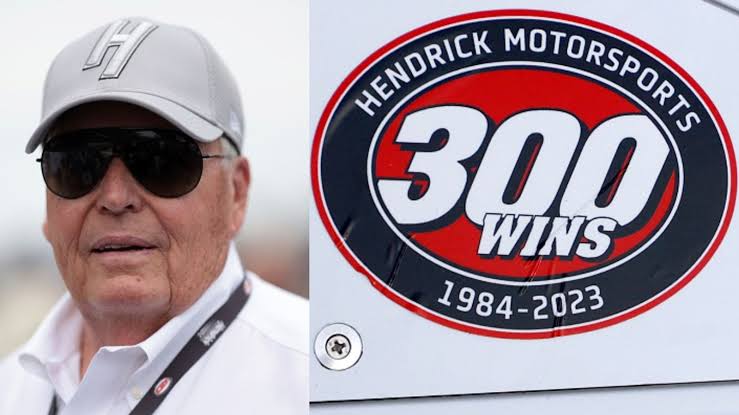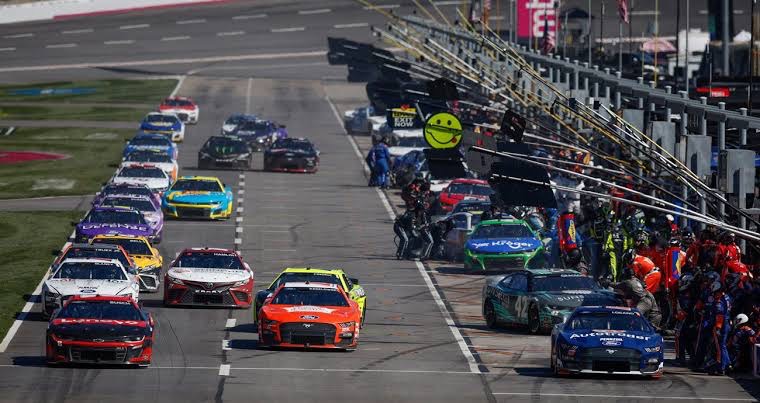Toyota, one of NASCAR’s leading manufacturers, is now taking a controversial step that may impact its image. Known for sponsoring top-tier drivers like Denny Hamlin and Tyler Reddick, both of whom are in the race for the Cup Series championship, Toyota has recently made a decision that could affect its reputation, particularly among its workforce and fans. Despite its success on the track, Toyota’s choice to step back from certain diversity and inclusion initiatives has sparked significant debate within the NASCAR community.
Toyota, which employs 50,000 workers in the U.S. and operates with 1,500 dealers nationwide, has faced backlash following its recent actions. The company decided to pull back on its diversity, equity, and inclusion (DEI) initiatives, a move seen as a response to pressure from an activist campaign. This decision has led to mixed reactions from fans, employees, and the broader public.
Conservative activist Robby Starbuck was at the center of the controversy, criticizing Toyota’s association with the LGBTQ+ advocacy group, the Human Rights Campaign (HRC). Starbuck’s campaign aimed to push major corporations, including Ford, Harley-Davidson, and Lowe’s, to reevaluate their DEI commitments. Toyota is the latest company to yield to this pressure, with its decision aligning with the activist’s demands.
As reported by Bloomberg, Toyota has chosen to refocus its DEI efforts, particularly by ending sponsorships of LGBTQ+ events and withdrawing from participation in HRC rankings and other corporate culture surveys. In an internal memo to its employees, Toyota stated that it would “narrow our community activities to align with STEM education and workforce readiness.” This change marks a significant shift in Toyota’s corporate strategy.
Initially, Toyota responded to Starbuck’s boycott by stating that its employee groups, not the company, led the LGBTQ+ initiatives. However, it soon changed its stance, aligning more closely with Starbuck’s viewpoint. This decision has sparked criticism from advocacy groups, including HRC. Eric Bloem, HRC’s vice president, warned Toyota about the potential long-term consequences of stepping away from DEI initiatives. He noted that such decisions could hinder business success in a future where more people identify as LGBTQ+.
The NASCAR community has not been silent about Toyota’s decision, with reactions varying widely among fans. NASCAR has a broad and diverse audience, though many of its long-time followers tend to hold more traditional views. As a result, some fans were upset by Toyota’s decision to roll back its diversity policies.
One fan expressed their disappointment, stating they would no longer consider purchasing a Toyota vehicle. “I was looking at a @ToyotaMotorCorp but I’ll be sticking with Volkswagen for my next car now,” the fan wrote. Others echoed similar sentiments, criticizing Toyota for giving in to pressure from a vocal minority. One commenter called the move “spineless” and accused Toyota of failing to stand firm against Starbuck’s demands. Another fan hinted that the decision might lead to a drop in sales, stating, “Cowards (laughing emoji) f-ck that sequoia I was eyeing then.”
On the other hand, a portion of the NASCAR fanbase supported Toyota’s decision, seeing it as a return to traditional values. Some fans even predicted a positive impact on Toyota’s sales as a result. One fan noted, “Thank goodness I need a new 4-Runner,” while another expressed pride in Toyota’s stance, saying they would drive their Toyota with “250k miles” to the upcoming Talladega Superspeedway race. For these fans, Toyota’s decision was a welcome shift that aligned with their personal beliefs.
Toyota’s choice to scale back its DEI initiatives has clearly divided both its workforce and its fanbase. Some view the decision as a retreat from progress, while others see it as a reaffirmation of traditional values. For Toyota, the challenge moving forward will be balancing its corporate strategy with the diverse perspectives of its employees, customers, and NASCAR fans.
The long-term impact of this decision remains to be seen. Toyota has been a key player in NASCAR, both in terms of racing success and corporate partnerships. Whether this move will affect its workforce or its standing within the sport is uncertain. What is clear, however, is that Toyota’s actions have sparked a broader conversation within the NASCAR community about the role of corporations in promoting diversity and inclusion.
NASCAR Fans Left Divided Over Toyota’s Shocking Move Refocusing DEI Involvement




